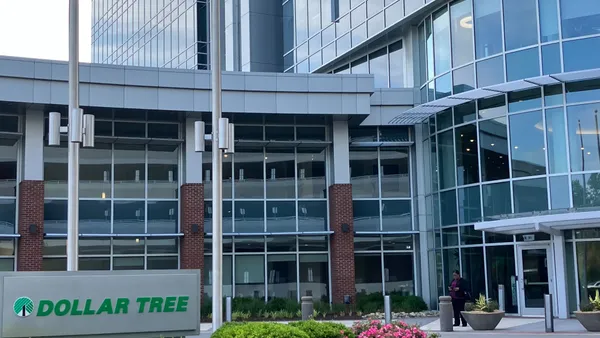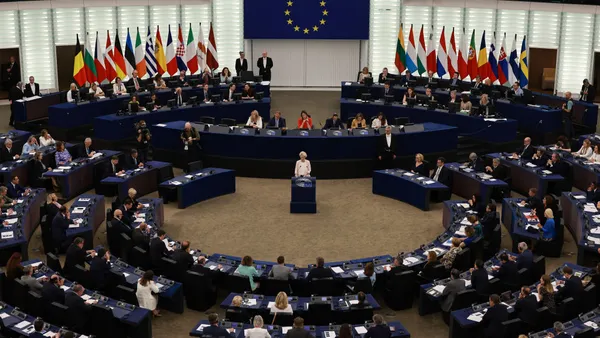CVS rocked the healthcare industry last week when it bought Aetna for $69 billion, merging health insurance services with retail offerings. The combined company would reap an estimated $240 billion in annual revenue.
The merger has yet to face regulatory scrutiny, but if the merger passes, CVS-Aetna will become a major game-changer in healthcare procurement because it will control the three parts of the healthcare procurement process: PBMs, insurers and retail.
To help procurement professionals and supply chain managers understand the merger, Supply Chain Dive put together a quick guide for making sense of the event and how it could impact drug procurement and supply chains.
What happened?
Here's how the merger went down:
- CVS, the largest U.S. pharmacy chain — which also provides minor healthcare services through more than 1,100 MinuteClinics — announced its plan to buy Aetna, a Fortune 500 company that sells health insurance plans, for $69 billion in a December 3 press release.
- The total value of the deal is estimated at $77 billion, including Aetna's debt. Aetna shareholders will receive $145/share in cash.
- This deal will also ramp up the competition with Walgreens, which has approximately 400 healthcare clinics at select Walgreens locations nationwide.
What will the merger disrupt?
At first glance, it may not be clear how the CVS-Aetna merger could affect the supply chain, but a CVS-Aetna combo could seriously disrupt how pharmacy benefit managers (PBMs) and insurers do business with retailers, doctors and hospitals.
Retailers and hospitals need PBMs in order to obtain drugs, and need insurers in order to sell those drugs at an affordable price to customers. Here is a breakdown of what could happen now that a retailer has merged with an insurer:
- In order to get drugs, retailers and hospitals rely on PBMs. But in order for a retailer to fill a wide range of drug prescriptions (like hospitals and doctors' offices can), it also needs a relationship with an insurer.
- CVS's PBM is Caremark, and if the deal clears, CVS would also own an insurer (Aetna). As a result, CVS would control the three parts of the drug procurement process: PBMs, insurers and retail. The only thing missing will be its own hospital.
- This allows CVS to compete with primary care physicians and doctors' offices for a variety of medical issues and drug needs. It’s one step closer to becoming a fully comprehensive healthcare provider.
Why does this matter?
We don't know all the details yet, but here are a few things that could happen if the merger concludes:
- The merger would give CVS a better chance at getting the best drugs at the best rates, perhaps even better than hospitals. That could pull customers away from doctors and hospitals.
- Drug prices obtained through Caremark could go down for CVS and Aetna but up for their competitors, such as Walgreens and traditional doctors' offices.
- Because of that likelihood, the merger will likely face heavy regulatory scrutiny.
By buying Aetna, CVS could revolutionize healthcare as we know it, because for the first time, a retailer would fully control its drug supply chain. In the most extreme case, the merger could cause drug prices to drop and transform doctors' offices and hospitals into emergency-only service providers.













